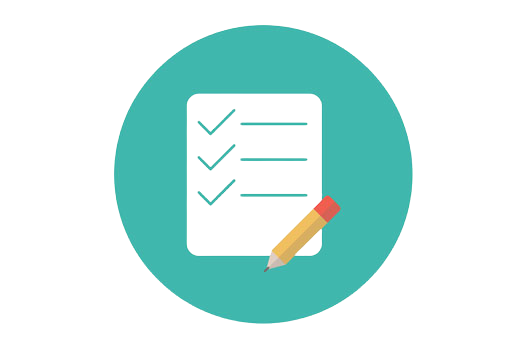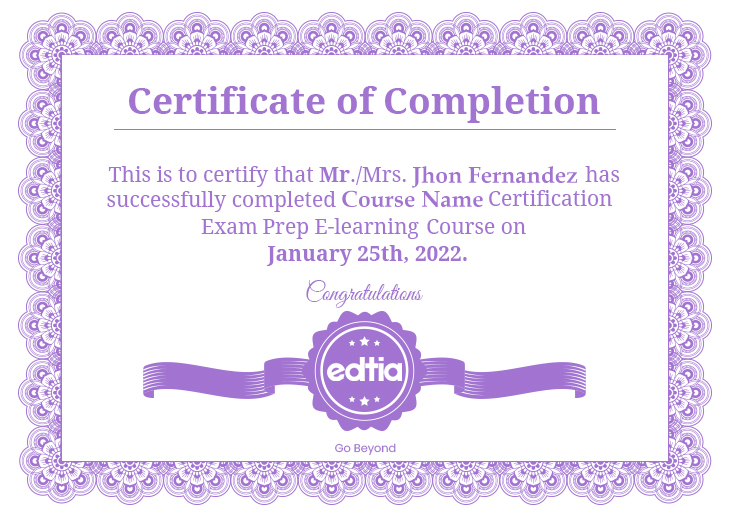Your Shopping Cart

Bestseller
The PMI-RMP (Project Management Institute - Risk Management Professional) exam is a certification examination offered by the Project Management Institute (PMI) that focuses specifically on risk management within the field of project management. The PMI-RMP certification is designed for individuals who want to demonstrate their expertise and proficiency in identifying, assessing, and mitigating project risks. Here's a detailed description of the PMI-RMP exam:The PMI-RMP certification
It is intended to validate an individual's knowledge and skills in risk management practices and principles as they apply to project management.Target Audience The PMI-RMP certification is suitable for project managers, project coordinators, risk managers, and individuals involved in project management who wish to enhance their risk management competencies.The PMI-RMP exam covers a range of topics related to risk management, including risk identification, risk assessment, risk response planning, risk monitoring and control, and various tools and techniques used in risk management. It is based on the PMI Risk Management Professional (PMI-RMP) Handbook.
Answer: The PMI-RMP certification is a globally recognized credential that validates your expertise in project risk management. It demonstrates your ability to identify, assess, mitigate, and manage risks in project environments. It can enhance your career prospects and credibility, especially if you work in project management or risk management roles.
Answer: To be eligible for the PMI-RMP exam, you typically need to have a secondary degree (high school diploma, associate's degree, or global equivalent), along with at least 4,500 hours of specialized project risk management experience and 40 hours of project risk management education. Alternatively, candidates with a four-year degree can substitute with 3,000 hours of project risk management experience and 30 hours of relevant education.
Answer: The PMI-RMP exam is a computer-based test comprising multiple-choice questions. It covers several domains, including Risk Strategy and Planning, Stakeholder Engagement, Risk Process Facilitation, Risk Monitoring and Reporting, and Risk Governance. The questions assess your knowledge of risk management principles and practices.
Answer: PMI provides official resources for exam preparation, including the PMI-RMP Handbook, which details the exam content, eligibility criteria, and application process. You can also access study guides, practice exams, and training courses offered by PMI and third-party providers. These resources are invaluable for comprehensive exam preparation.
Answer: The PMI-RMP certification is valid for three years. To maintain your certification, you must earn a minimum of 30 Professional Development Units (PDUs) in risk management-related activities during each three-year renewal cycle. These activities can include continuing education, attending relevant events, or contributing to the field of risk management.
General Introduction
Risk in the WBS
Schedule Risk
Risk in Project Budgets
Quality and Risk
Interpersonal/HR Skills and Risk
Contract Types and Risks
Risk Taking or Risk Averse
Plan Risk Management
Code of Ethics
Answer: There are typically no prerequisites for enrolling in PMI-RMP training or education programs. However, it's recommended that candidates have a foundational understanding of project management and risk management principles before pursuing more advanced training.
Answer: Yes, the PMI-RMP certification is internationally recognized and holds value worldwide. PMI is a globally respected organization, and the certification demonstrates a candidate's competence in risk management, making it valuable in various industries and regions.
Answer: If you do not pass the PMI-RMP exam on your first attempt, you have two more opportunities to retake it within one year of your initial eligibility period. However, you must pay an exam reexamination fee for each retake attempt.
Answer: The primary requirement for maintaining the PMI-RMP certification is to earn and report a minimum of 30 Professional Development Units (PDUs) related to risk management during each three-year renewal cycle. These PDUs can be earned through various activities, including education, attending events, and contributing to the field.


Every certification training session is followed by a quiz to assess your course learning.

The Mock Tests Are Arranged To Help You Prepare For The Certification Examination.

A lifetime access to LMS is provided where presentations, quizzes, installation guides & class recordings are available.

A 24x7 online support team is available to resolve all your technical queries, through a ticket-based tracking system.

For our learners, we have a community forum that further facilitates learning through peer interaction and knowledge sharing.

Successfully complete your final course project and Edtia will provide you with a completion certification.
Answer: The application process involves documenting your education, project risk management experience, and education hours. After submitting your application, PMI typically takes about five business days to review and approve it. Once approved, you'll receive instructions for scheduling your exam.
Answer: The exam fee for PMI members is usually lower than for non-members. As of my knowledge cutoff date in September 2021, the fee for PMI members was around $520, while non-members paid approximately $670. Additional costs may include study materials, training courses, and renewal fees every three years.
Answer: Yes, the PMI-RMP certification is designed for professionals with experience in project risk management. While PMI-RMP focuses primarily on risk management, having a foundational understanding of project management principles and some experience in project management can be beneficial.
Answer: PMI doesn't publicly disclose specific pass rates for their exams. If you don't pass the PMI-RMP exam on your first attempt, you can retake it. PMI allows candidates to retake the exam up to three times within one year of their initial eligibility period. It's advisable to thoroughly review your exam results and areas of weakness before retaking the exam.
Answer: The PMI-RMP exam primarily consists of multiple-choice questions. PMI does provide sample questions in their official study resources and on their website, which can help candidates get a sense of the question format and content.
